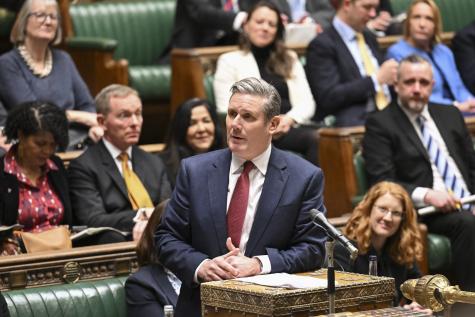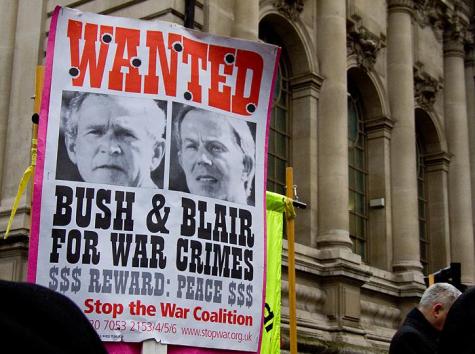LABOUR Party

➡️ UK LABOUR PARTY – Critical Analysis of Policies and Pledges
After the landslide election in July 2024, the Labour Party are now back in government after a 14-year hiatus. The results however revealed more about the strong anti-Conservative sentiment than any love for Labour.
Although declared a landslide, the win amounted to only 35% of all voters, with a turnout of 60%. In fact, Labour actually received more votes under Jeremy Corby's leadership in 2019. The party is currently led by the now Prime Minister Keir Starmer whose manifesto proposes very few actual policies, and conveniently leaves out the ‘how’.
Explore the following in-depth categories on Labour -
What is in the New Labour Manifesto?
Public opinion views the Labour manifesto as unrealistic and unaffordable, and with the majority of voters believing that parties never stick to their promises anyway, Labour face an uphill battle in winning over the country.
Labour has created a series of pledges, we have highlighted the key points below -
-
A change to the tax status of non-domestic high-earners
-
A crack down on tax avoidance
-
An increase in private school taxes
-
A windfall tax on energy companies
-
300,000 new homes a year
-
40,000 more NHS appointments and operations
-
A ban on new petrol and diesel cars by 2030
-
A new Border and Security Command and the scrapping of the Rwanda scheme
-
£24 billion in green investment
-
Full commitment to nuclear weapons and NATO
-
An iron-clad commitment to military support for Ukraine as well as support for their NATO membership
Half of the general public doubt Labour’s ability to fund these commitments, on top of that, only 63% of Britons believe that these changes represent a positive change for the country.
Shockingly, half of the population are not even sure what Keir Starmer stands for. This further confirms the sentiment that Labour have secured this term simply through lack of better options. Public opinion of Starmer tends to be more negative than positive and so Britons and the world watch with scrutinous eyes to see whether the UK can finally start on the road to recovery, or if this government is just more of the same.

Who is Labour Leader Keir Starmer?
Appointed Prime Minister on July 5, Keir Starmer has served as the leader of the Labour Party since April 2020. He is known for his centrist views and efforts to move the Labour Party away from progressive policies compared to his predecessor, Jeremy Corbyn.
He has faced accusations of blocking many potential left-wing candidates and suspended left-wing MPs in his attempts to further cement the party's ideologies in the centre.
Starmer was elected Labour leader in the aftermath of an investigation by the Equality and Human Rights Commission (EHRC) into systematic antisemitism within the party. They were found guilty of three breaches of the Equalities Act. They went on to temporarily suspend Jeremy Corbyn in a brutal smear campaign to undermine support for the leader at the time.
Since taking the helm as Labour leader, Starmer has become infamous for a series of high-profile policy U-turns that helped secure his position in the first place – 27 and counting in fact. Starmer's political one-eighty's include policies on renationalisation (rail, mail, energy, and water), ending outsourcing of the NHS, supporting trade unions, freedom of movement for EU citizens, abolishment of Universal Credit, removal of university tuition fees, guaranteed childcare for children, raising taxes for the top 5% of earners, increased taxation of tech firms, introduction of rent controls, expansion of the Ultra Low Emission zone in London, scrapping the two-child benefit cap, implementing ‘right-to-roam' policy in England, a stop to the sale of arms to Saudi Arabia, a cap on bankers bonuses, and the £28 billion a year green investment promise.
History of the Labour Party
Founded in 1900, and grown out of the trade union movement, the Labour Party’s traditional values were centred around fairness, equality, and social justice. As such the party has been historically aligned with the working class, advocating for wealth redistribution, quality public services, and workers' rights.
There have been six Labour prime ministers since 1922. One of the major successes was the establishment of the countries National Health Service (NHS), the national minimum wage, and the expansion of the welfare state.
Over the years the party has shifted more to the centre of the political spectrum, supporting both the public and private sectors in order to appeal to greater numbers of voters and party donors.

Major Criticisms of the Labour Party
IRAQ WAR (2003)
Under the leadership of Prime Minister Tony Blair, the UK pledged their full support for the US invasion of Iraq. This decision was highly controversial and led to a significant loss of support for Labour. The invasion killed hundreds of thousands of Iraqis and is the most investigated UK foreign policy decision of the last 50 years.
BREXIT (2016)
Labour maintained an ambiguous stance on the decision of whether to exit the European Union or not. The party failed to effectively campaign for Remain which contributed to confusion among its supporters who weren’t aware of the party's official position. This was seen as a clear leadership failure on a critical issue, impacting not only the party's credibility but the future of the country.
GENERAL ELECTION (2019)
Under Jeremy Corbyn, Labour experienced its worst electoral defeat since 1935. The party's stance on Brexit, accusations of antisemitism within the party ranks, a manifesto that was criticised as overly ambitious, and weakening links with trade unions contributed to this significant loss and much damage to the reputation of the party.
ANTISEMITISM IN THE LABOUR PARTY
The issue gained significant attention between 2015 to 2020 when the party was accused of harbouring anti-Semitic attitudes and failing to adequately address related complaints. In 2020 the EHRC released their findings and confirmed the party had committed unlawful acts of harassment and discrimination against Jewish members. Significant changes were implemented in response including the adoption of stricter measures to combat antisemitism.
In 2022, the Forde Report exposed how antisemitism had been used as a weapon in an orchestrated campaign by interested parties such as party donors, centrists, lobbyists, and the mainstream media to oust Jeremy Corbyn and his progressive agenda.
Author: Rachael Mellor, 09.07.24 (updated 19.07.24) licensed under CC BY-ND 4.0
For further reading on the Labour Party see below ⬇️
Info on LABOUR Party
- General Info[50]
- Forde Report 2022[36]
- Labour LEADERSHIP Contest 2020[30]
- Labour Leadership Contest 2015[34]
- Left Labour[60]
- Labour Articles[174]